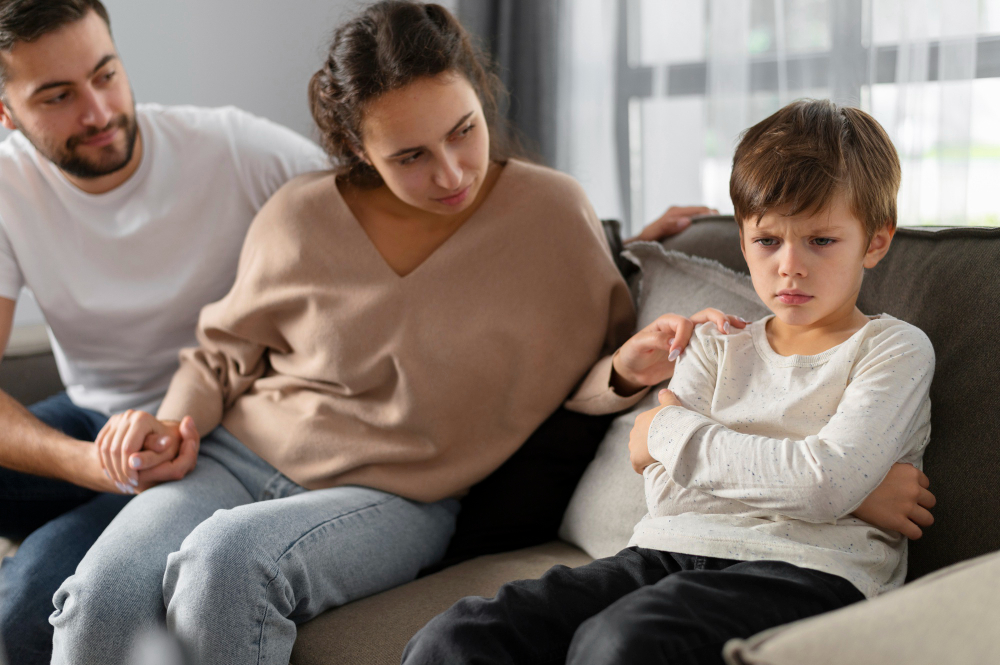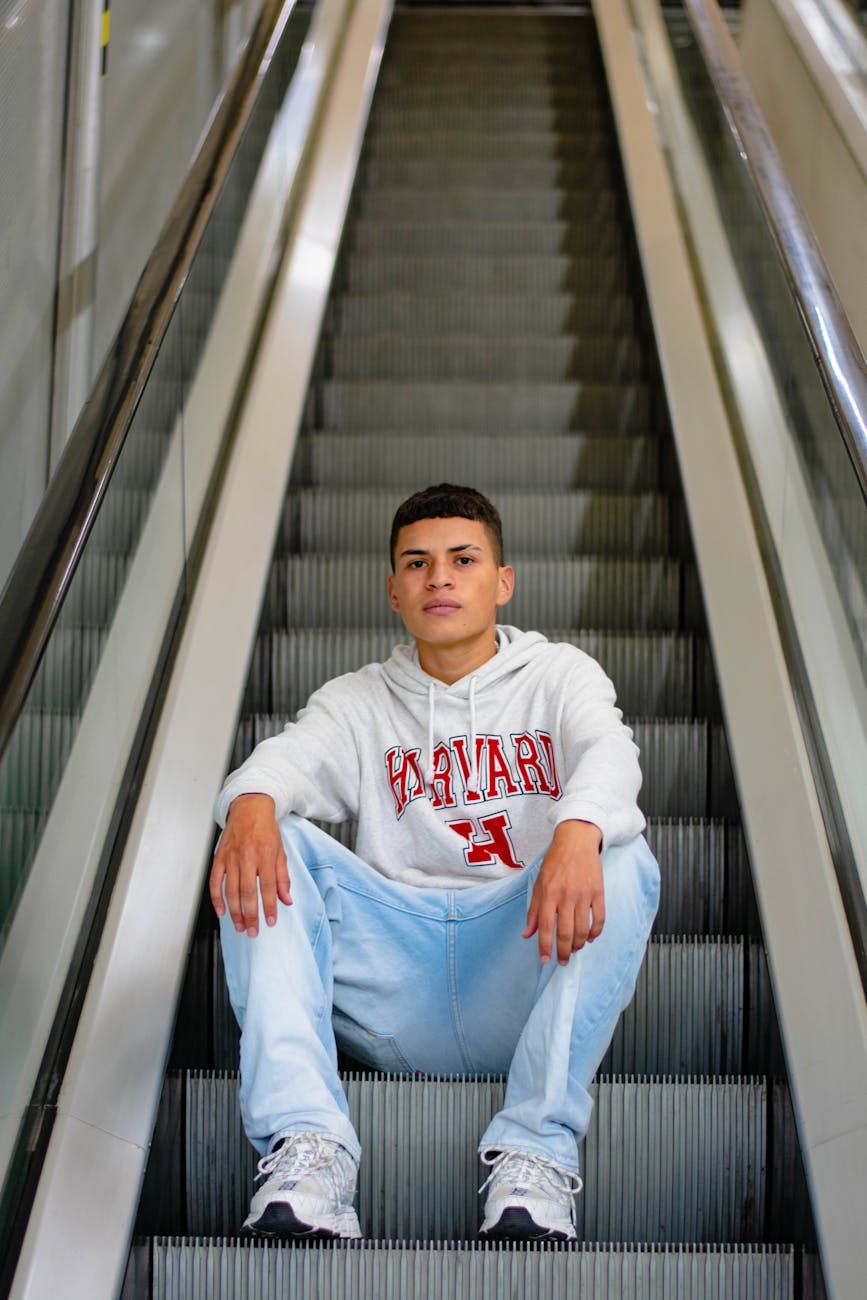The Power of Connection Before Correction — What Every Parent Needs to Know

We believe that strong parent-child connection is the foundation of all healthy discipline. Long before a child can receive instruction or correction, they need to feel seen, safe, and supported.
As a parent, you don’t have to raise your voice to raise a strong child.
You don’t need to feel lost, frustrated, or like you’re failing. We are here to help you.
What is “Connection Before Correction”?
This powerful parenting approach is backed by neuroscience and child psychology. It teaches that before correcting a child’s behavior, parents should first establish emotional connection through empathy, presence, and calm interaction
According to brain science: When children feel emotionally connected and regulated, the brain’s prefrontal cortex (thinking brain) becomes more active, enabling learning, problem-solving, and reflection. Without connection, the brain shifts into fight-flight-freeze mode.
Why Connection Matters: How Emotional Bonds Shape Your Child’s Future
🧠 Mental Health – 70% of mental health disorders begin in childhood or adolescence — World Health Organization
Children with strong emotional bonds to their caregivers show:
- Lower anxiety and depression
- Greater resilience and coping skills
- Higher self-esteem and a stronger identity
❤️ Emotional Development – Children mirror the emotional state of their caregivers. Calm parenting creates calm children.
Connection creates emotional safety, leading to:
- Improved self-regulation
- Greater empathy and healthier relationships
- Fewer tantrums and emotional outbursts
🏥 Physical Health – Chronic early stress without nurturing relationships harms brain and physical development — Harvard
Secure attachment impacts the body:
- Lowers cortisol (stress hormone) levels
- Strengthens immunity
- Improves sleep quality
- Reduces psychosomatic issues (e.g., headaches, stomach aches)
🎓 Academic Performance – Connection is the foundation of confidence, health, and learning.
Emotionally connected children are:
- More focused and task-oriented
- Better behaved in school
- More likely to stay engaged and succeed academically
Research by the American Academy of Pediatrics shows that children with strong emotional bonds to their parents perform better academically and display around 40% fewer behavioral issues in school. This highlights the positive impact of close parent-child relationships on both learning outcomes and classroom behavior.
We Help You Connect & Correct — Without the Overwhelm
Parenting isn’t about perfection — it’s about presence. We help you move from surviving to thriving with tools that make real change possible:
🎥 On-Demand Videos – Learn emotional intelligence & calm communication
💬 Parent Coaching – Evidence-based behavior and development strategies
🧠 Connection Activities – Age-specific bonding tools backed by brain science
✅ Discipline Without Damage – Correct behavior, protect trust
📄 Printable Calm-Down Plans – For peaceful problem-solving
💞 Healing Programs – Rebuild broken or strained relationships
🧘 “Parent Pause” Tools – Regulate your own emotions before reacting
📓 Weekly Reflections – Journal growth and shift old patterns
🤝 Parent Circles – Support from parents walking the same path
🧩 Behavior Root Cause Analysis – Understand what your child really needs
The Outcome?
🌟You stop reacting, and start relating
🌟Discipline becomes guidance, not guilt
🌟Your home shifts from chaos to calm
🌟You model the resilience and empathy your child needs
🌟You heal yourself while raising your child
We don’t walk ahead of you — we walk with you. Because your growth is your child’s greatest gift. “Parenting is a journey. We’re honored to be part of yours.”

Discipline with Dignity
Discipline isn’t about punishment — it’s about teaching. The word comes from disciplina, meaning “to teach.” Modern child psychology (Dr. Dan Siegel, Dr. Laura Markham, Dr. Ross Greene) agrees that effective discipline is:
✅Calm & Clear – Not reactive or harsh
✅Age-Appropriate – Matches brain development
✅Firm, Yet Empathetic – Respects boundaries without shame
✅Problem-Solving Focused – Not just about consequences
✅Consistent & Predictable – Builds trust and emotional safety
Children learn best when they feel safe, seen, and supported — even during correction.
Discipline should activate the child’s thinking brain, not their fear brain.
Age-Appropriate Connection and Correction.

Ages 0–5: Foundation of Attachment
- Prioritize touch, eye contact, and routines
- Use redirection and gentle explanations
- Avoid yelling or timeouts; they disconnect the child emotionally

Ages 6–9: Learning Self-Regulation
- Connect through play and shared stories
- Use natural consequences rather than punishments
- Help them name their feelings

Ages 10–13: Respect & Trust
- Invite their opinions and listen deeply
- Co-create rules and expectations
- Keep connection strong through 1-on-1 time

Ages 14–19: Guide, Don’t Control
- Respect growing independence
- Offer guidance without lectures
- Set boundaries through mutual respect
The 2024 CDC Youth Risk Behavior Survey found that teenagers who lack an emotional connection with their parents or caregivers are about three times more prone to participate in risky activities such as substance abuse, unsafe sex, and violence. This highlights how emotional disconnection can increase teens’ susceptibility to harmful behaviors during adolescence.
🚩 Misbehavior Is a Signal — Not a Character Flaw
When a child “acts out,” it’s not defiance — it’s dysregulation.
What Science Says: Misbehavior often means unmet emotional needs. According to Dr. Bruce Perry, it’s a stress response, not rebellion. Children act out when:
- Their nervous system is overwhelmed
- They lack words for their feelings
- They feel disconnected or unseen
“My child isn’t giving me a hard time — they’re having a hard time.”
❌ Punishment ≠ Learning – Harsh discipline raises stress hormones (cortisol), reducing focus, emotional control, and trust.
❤️ The Power of Connection: Children with steady emotional support are 50% less likely to have behavioral issues by age 12 (NIMH).
📱 Digital Disconnection: A Hidden Threat
In a distracted world, attention is affection.
The Risk of “Technoference”:
A 2023 study (Univ. of Michigan) links high parental screen time with more behavior problems in kids.
- Parents spend 7+ hours/day on devices (Statista, 2024)
- Children feel ignored and emotionally insecure
At Transformationwithin
We help you decode misbehavior, reconnect deeply, and parent from calm — not chaos.

The Cost of Low Emotional Intelligence at Home
Children raised in emotionally disconnected homes are:
- 4× more likely to engage in violent behavior
- 3× more likely to experience suicidal thoughts
- At higher risk of academic failure or dropping out
Digital Detox Connection Rituals™
At Transformationwithin, we teach simple 5–15 minute daily habits to help you reconnect face-to-face with your child — no screens, no pressure.
“When you make space for presence, your child makes room for trust.”
Healing the Parent First — Break the Cycle — You can’t give what you never received. But you can become what your child needs.
What Science Says: Trauma and emotional absence can be passed down — or rewired. Harvard Center on the Developing Child (2021)
Emotionally supported parents raise children with:
- Stronger brains
- Better stress regulation
- Healthier relationships
If you grew up with:
- Harsh correction
- Silent treatment
- Emotional disconnection
…you may repeat those patterns — unless you choose to heal.
Our Programmes
Our coaches provide comprehensive interventional support for students through both group and individual program options.
Get In Touch
Reach out to learn more about how we can help, or if you have any questions or concerns
